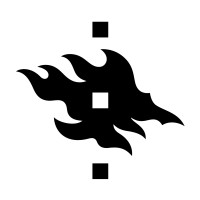Company Cyber Security Posture
NANA
NA Company Details
NA
NA
NA
NA
NA
NA
Scan still pending
NA
NA
Between 200 and 800
This score is AI-generated and less favored by cyber insurers, who prefer the TPRM score.
 NA Global Score
NA Global Score.png)

Company Scoring based on AI Models
| Model Name | Date | Description | Current Score Difference | Score |
|---|---|---|---|---|
| AVERAGE-Industry | 03-12-2025 | This score represents the average cybersecurity rating of companies already scanned within the same industry. It provides a benchmark to compare an individual company's security posture against its industry peers. | N/A | Between 200 and 800 |
Company Cyber Security News & History
| Entity | Type | Severity | Impact | Seen | Url ID | Details | View |
|---|
Company Subsidiaries

NA
Access Data Using Our API

Get company history
.png)
NA Cyber Security News
The China Defence Universities Tracker
The 'Seven Sons of National Defence' (国防七子) are a group of leading universities with deep roots in the military and defence industry. They' ...
Compressive Channel Estimation Based on the Deep Denoising Network in an IRS-Enhanced Massive MIMO System
We proposed a new method for the reduction of training overhead in IRS with a partial ON/OFF model and an optimizing strategy for pilot design approach.

NA Similar Companies

North Carolina State University
With more than 34,000 students and 7,000 faculty and staff, North Carolina State University is a comprehensive university known for its leadership in education and research, and globally recognized for its science, technology, engineering and mathematics leadership. NC State students, faculty and

University of Helsinki
Working for the world Science has the power to change the world. Join one of the best research universities in the world – an international community united through bold thinking, science, research, and learning, with over 30,000 students and 8,000 employees. We are defined by our multidisciplina

Amity University
Amity University is India's top ranked non-profit private University where more emphasis is given on not only making you academically brilliant, but true leaders and team players, thus preparing you for the real life corporate world. Amity is the leading education group of India with Most Hi-tech Ca

The University of Kansas
KU is a major comprehensive research and teaching university and a center for learning, scholarship, and creative endeavor. KU is the only Kansas Regents university to hold membership in the prestigious Association of American Universities (AAU), a select group of public and private research univers

The University of Manchester
The University of Manchester is part of the prestigious Russell Group of universities and highly respected across the globe as a centre of teaching excellence and research innovation and discovery. With 25 Nobel Prize winners among our current and former staff and students, we have a history of wor

Deakin University
Established in 1974, Deakin is one of Australia’s most progressive and agile universities, leading in the innovative use of digital technologies and online learning, and blending this capability across its distinctive campus precincts in Melbourne, Geelong, Warrnambool and India. Deakin has achieve

Frequently Asked Questions
Explore insights on cybersecurity incidents, risk posture, and Rankiteo's assessments.
NA CyberSecurity History Information
How many cyber incidents has NA faced?
Total Incidents: According to Rankiteo, NA has faced 0 incidents in the past.
What types of cybersecurity incidents have occurred at NA?
Incident Types: The types of cybersecurity incidents that have occurred include .
Additional Questions
What Do We Measure?
















Every week, Rankiteo analyzes billions of signals to give organizations a sharper, faster view of emerging risks. With deeper, more actionable intelligence at their fingertips, security teams can outpace threat actors, respond instantly to Zero-Day attacks, and dramatically shrink their risk exposure window.
These are some of the factors we use to calculate the overall score:
Identify exposed access points, detect misconfigured SSL certificates, and uncover vulnerabilities across the network infrastructure.
Gain visibility into the software components used within an organization to detect vulnerabilities, manage risk, and ensure supply chain security.
Monitor and manage all IT assets and their configurations to ensure accurate, real-time visibility across the company's technology environment.
Leverage real-time insights on active threats, malware campaigns, and emerging vulnerabilities to proactively defend against evolving cyberattacks.




